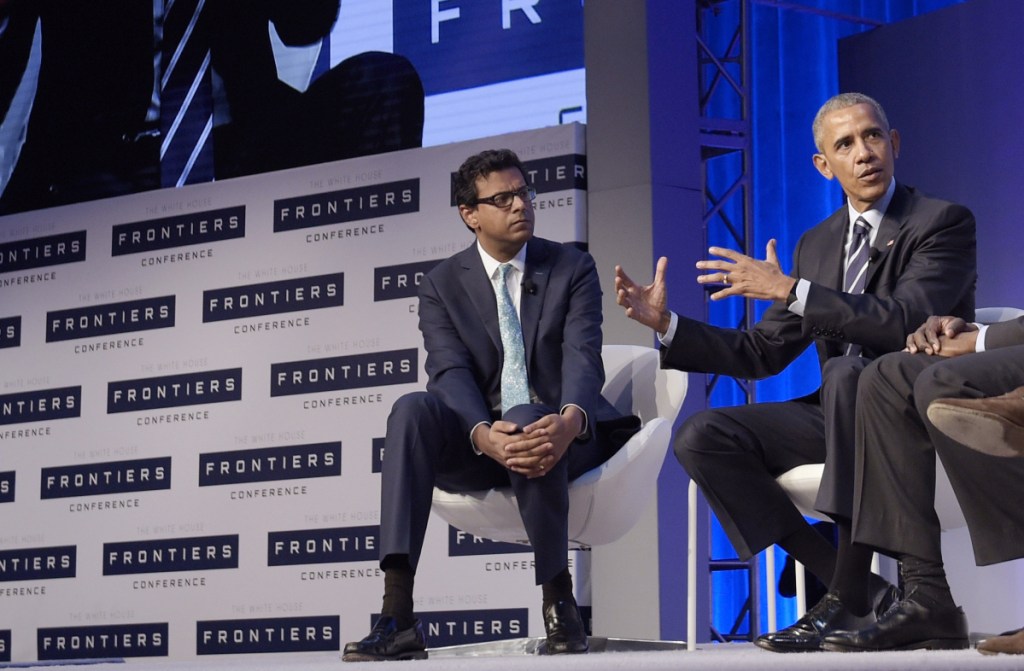Amazon, JPMorgan Chase and Berkshire Hathaway have picked well-known author and Harvard professor Dr. Atul Gawande to transform the health care they give their employees.
The three corporate titans said Wednesday that Gawande will lead an independent company focused on a mission they announced earlier this year: figure out ways to improve a broken and often inefficient system for delivering care.
Health care researchers have said any possible solutions produced by this new venture will be felt well beyond the estimated 1 million workers the three companies employ in the United States. Other businesses that provide employee health coverage are eager to find solutions for health care costs that often rise faster than inflation and squeeze their budgets in the process.
Berkshire Chairman and CEO Warren Buffett has described health costs as a “hungry tapeworm on the American economy.”
Leaders of the three companies have said little about how their Boston-based venture plans to tackle this problem, but they have noted that it will take time to figure out solutions, a point they emphasized again on Wednesday.
“We said at the outset that the degree of difficulty is high and success is going to require an expert’s knowledge, a beginner’s mind, and a long-term orientation,” Amazon CEO Jeff Bezos said in a prepared statement. “(Gawande) embodies all three, and we’re starting strong as we move forward in this challenging and worthwhile endeavor.”
Employer-sponsored insurance covers about 157 million people, according to the Kaiser Family Foundation. That’s nearly half the total U.S. population and the biggest slice of the country’s patchwork health insurance market.
Neither companies nor many of their employees are happy with how the system currently works. Employers have reacted in part to rising expenses by raising deductibles and other costs, asking their workers to pay more of the bill and to shop around for better deals. Many patients, especially the sickest, struggle with that.
Gawande is surgeon and professor at both Harvard’s Medical School and its T.H. Chan School of Public Health. He said in a statement Wednesday that he has devoted his career in public health to building solutions for better care delivery, and that while the current system is broken, “better is possible.”
The consortium’s leaders have said they aren’t looking for a quick fix. JPMorgan Chase Chairman and CEO Jamie Dimon said during an appearance on CNBC earlier this month that fraud in the system, high administrative costs and the overuse and underuse of some drugs are among the many complications that must be improved.
The three companies said in late January that their new venture will focus on technology that provides simplified, high-quality and transparent care.
Amazon’s participation and customer-first focus will be crucial, according to Brian Marcotte, CEO of the National Business Group on Health, a nonprofit that represents large employers.
He noted that employers already offer ways to help patients shop for care or see a doctor remotely through telemedicine. But people don’t use this technology unless they need it, so they haven’t grown comfortable with it.
That could change if they go through a well-known platform like Amazon, which could then reach into its vast trove of customer data to personalize the shopping, Marcotte said. If, for instance, you are a runner considering knee surgery, Amazon could lay out the best or common practices for your condition and maybe show that surgery isn’t your only option.
“It’s not only reaching people in the moment, it’s the possibility to reach people with relevant personalized messaging that will engage them,” Marcotte said.
AP writers Joseph Pisani and Josh Funk contributed to this report from New York and Omaha, Nebraska, respectively. Murphy reported from Indianapolis.
Send questions/comments to the editors.


